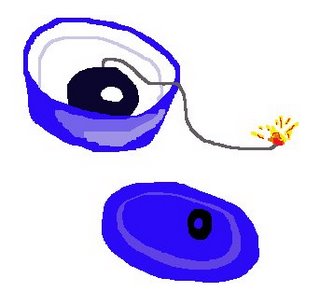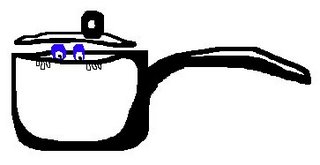
(click to enlarge ...) Send your messages of hope here.

An antique fiddle tune, often used for square dances, made famous around 1843 when Dan Emmett, one of the greatest early minstrel singers, wrote a version of these lyrics for his group, the Virginia Minstrels.

The visual culture has extended and intensified the importance of the presentation of self in everyday life. Self-presentation is increasingly regarded as revealing the 'true' self. All this carries with it a reshaping of sensibility.
self has expanded so as to occupy all of consciousness. Whatever is good for the self is good. The malignant narcissist is prone to magical thinking about the grandeur of their life and achievements. It is all or nothing; mediocrity is not tolerated: never good, but always great. They posses an exceptional sense of entitlement, of being uniquely special. Often intensely competitive, they have to be superior to those around them. They can only be up if the people around them are down. They are often harshly critical of others, sometimes to the point of self-righteous contempt. But they are also prone to savage envy. Their arrogance means that taking responsibility for a wrong is impossible. The malignant narcissist is the captain on a ship of fools.
We all know the story of Narcissus and how he fell in love with his own reflection, withering away by the lily pond, unable to move into life or relate to others, finally dying. But an excess of self-love is not, in any uncomplicated way, the problem with the narcissist. The narcissist is, in fact, an exceptionally shame-prone individual. The grandiose self-image is held up to defend against a central terror: that they amount to nothing at all.
The first year is a time when, all going well, the dominant emotions of Your Majesty the Baby are very positive. By the beginning of the second year, as they learn to walk and move, toddlers feel elated at their newfound power. But pride, as the old adage says, goes before a fall. They fall down, break things, get fingers into light sockets and spill milk all over the floor. For the excited toddler there's a shouted prohibition every nine minutes, on average. It is very deflating. They are often humiliated and angry. Toddler-hood is also now recognised as the most aggressive period of any of the human life-cycle. Toddlers are filled with ambitions; without the skills to realise them they are also filled with shame. Every day they are spinning through the cycles of grandiosity and deflation faster than any manic depressive. It is hardly surprising, then, that they get rather pissed off at the whole thing and throw, from time to time, an almighty tantrum - nor that they require a lot of empathy, tact and sensitivity in handling. But at this time the toddler is also noted for a new and importantly human quality: sobriety. Although it's a wilder, bumpier ride than any at Luna Park, slowly they develop the ability to admit flaws in the self; and a related ability, to admit they have capacity to injure others.
It is extremely important that the small child gets help in toning down and pepping up, in being comforted and not excessively shamed. The narcissist has got through the Your-Majesty-the-Baby period nicely. Their problem is dealing with shame. Some have been too harshly shamed: subjected to shame so overwhelming that it cannot be acknowledged. In a mental conjuring trick, they create a perfect self of astonishing grandiosity, one who is always adorable, admirable, holding away the unbearable truth that, in reality, they were not seen as worth loving.
By any historical standards, our society is marked by a radical individualism obsessed with the self. And it is a very particular self. It is a self on display, measured by externals and appearance, in pursuit of success and material prosperity more than care for others, of popularity and notice more than respect.
The problem is not just that the cult of self interferes with the good. It is that our values have shifted so far in favour of the ethos of narcissism that the pursuit of our self-interest now defines what we consider good. As [American sociologist Robert] Bellah concludes, "the only measure of the good is what is good for the self". And that, as a defining habit of the heart, is profoundly troubling.


He belongs, of course, ultimately, to a secret society, a conspiracy, of which there is only one member: himself. In that sense, and in a number of others too, he is a malefactor; a lunatic; a deserter; a conscientious objector; a guttersnipe; a social menace and an Anti-Christ.
He is also a beggar; a road sweeper; a tinker; a hashish-drinker; a leper; a chicken-fancier; a paper-seller; a male nurse; a sun-worshipper and a gibbering idiot.
He is no less a traffic policeman; a rowing blue; a rear-gunner; a chartered accountant; a best man; a bus-conductor; a paid guide; a marriage-guidance counsellor; a church-goer; a stage carpenter; an umpire; an acrobat and a clerk of the court.
His tongue is guttural, Arabic, pepperish, composed, parsimonious, voluminous, rabid, diarrhoeic, transparent, laundered, dainty, mellifluous, consonantal, stammering, scabrous, naked, blade-edged, one-legged, piercing, hushed, clinical, dumb, convulsed, lewd, vicious, voracious, inane, Tibetan, monosyllabic, epileptic, raucous, ministerial, sudden, Sudanese, palpitating, thunderous, earthy, whimsical, acrimonious, wintry, malicious, fearsome, blighted, blistered, mouldy, tantalizing, juicy, innocent, lordly, gluttonous, irreverent, blasphemous, avaricious, autumnal, blasted, ecstatic, necromantic, gentle, venomous, somnambulistic, monotonous, uproarious, feverish, austere, demented, deathly, fractious, obsessed, ironic, palsied, morbid, sanctimonious, sacrilegious, calm, cunning, cannibalistic and authoritative.
Given characters who possess a momentum of their own, my job is not to impose upon them, not to subject them to a false articulation, by which I mean forcing a character to speak where he could not speak, making him speak in a way he could not speak, or making him speak of what he could never speak. The relationship between author and characters should be a highly respectful one, both ways. And if it's possible to talk of gaining a kind of freedom from writing, it doesn't come from leading one's characters into fixed and calculated postures, but by allowing them to carry their own can, by giving them legitimate elbowroom. This can be extremely painful. It's much easier, much less pain, not to let them live.
... what happens to a work of art in a culture that sees criticism as nothing more than a democracy of free-falling, free-floating subjectivities?
Within such a culture the work of art loses any possibility of, or claim to, aesthetic distinction, or difference. It would be just one more commodity in a culture that reduces everything towards the mean, that thrives on the exaltation of the average, to use Patrick White's unforgettable, spine-tingling description of Australian culture.
Decidedly, we shall not be safe if we forget the things of the mind. Indeed, if we want to save our souls, the mind must lead a more athletic life than it has ever done before and must more passionately than ever practise and rejoice in art. For only through art do we cultivate annoyance with inessentials, powerful and exasperated reactions against ugliness, a ravenous appetite for beauty. These are true guardians of the soul.